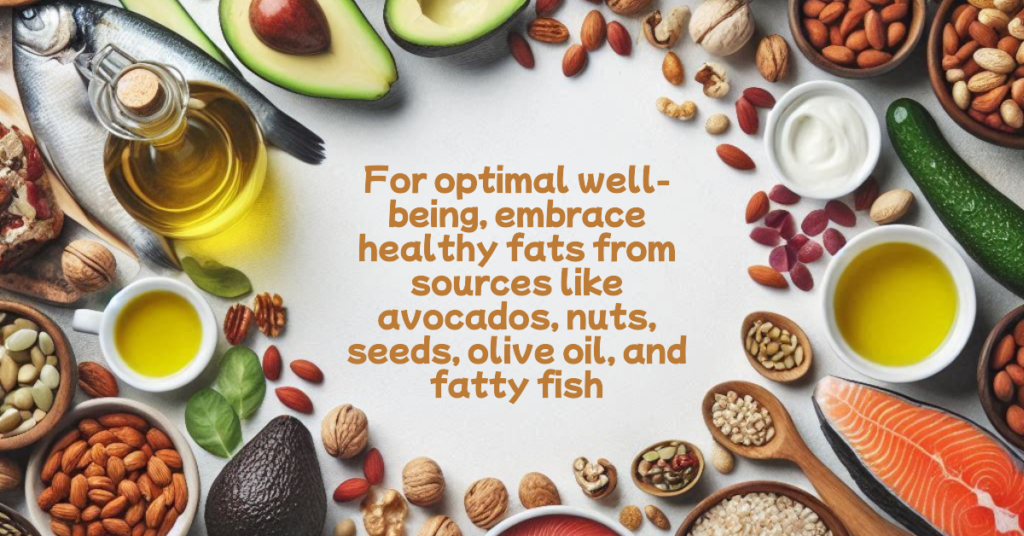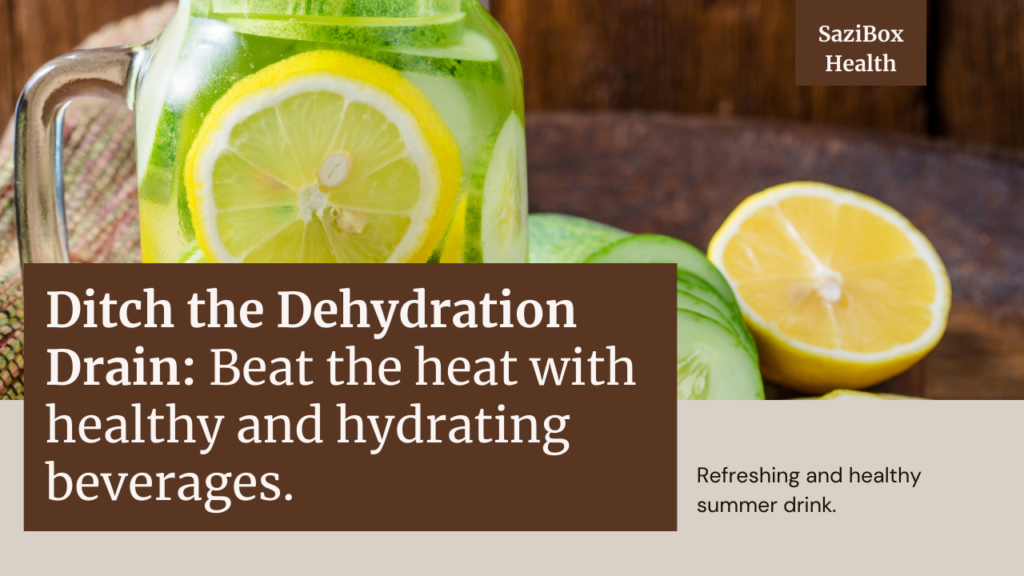
Article 6 of our Series “Nourishing Your Whole Self: The SaziBox Health Guide to Holistic Nutrition.
Welcome back to our series on holistic nutrition! Today, we’re tackling a topic that often gets a bad rap: fats. But not all fats are created equal. Some fats are essential for our health and well-being. So, let’s dive in and separate fact from fiction, exploring the different types of fats and how to incorporate them wisely into your diet.
Understanding Fats: More Than Just Calories
Fats are macronutrients, meaning our bodies need them in relatively large amounts. They serve several crucial functions:
- Energy Source: Fats provide a concentrated energy source that is more than double that of carbohydrates or proteins.
- Nutrient Absorption: Fats help our bodies absorb fat-soluble vitamins (A, D, E, and K).
- Hormone Production: Fats are essential for the production of hormones that regulate various bodily functions.
- Cell Structure: Fats are a key component of cell membranes, providing structure and protection.
- Organ Protection: Fats cushion our organs and provide insulation.
The Different Types of Fats
- Saturated Fats:
- Found primarily in animal products like meat, dairy, and butter, but also some plant sources like coconut oil and palm oil.
- Should be limited in the diet, as excessive intake can raise LDL (“bad”) cholesterol levels and increase the risk of heart disease.
- Unsaturated Fats:
- Considered “heart-healthy” fats. They are liquid at room temperature and come in two main types:
- Monounsaturated Fats (MUFAs): Found in olive oil, avocados, nuts, and seeds. Helps lower LDL cholesterol and reduce inflammation.
- Polyunsaturated Fats (PUFAs): Found in fatty fish, flaxseeds, walnuts, and sunflower oil. Include essential omega-3 and omega-6 fatty acids.
- Considered “heart-healthy” fats. They are liquid at room temperature and come in two main types:
- Omega-3 Fatty Acids:
- A type of PUFA is especially beneficial for heart health, brain function, and reducing inflammation.
- Sources include fatty fish (salmon, tuna, mackerel), flaxseeds, chia seeds, walnuts, and algae oil.
- Trans Fats:
- The worst type of fat for health. They are created artificially by adding hydrogen to liquid vegetable oils (partial hydrogenation) to make them more solid and increase shelf life.
- Trans fats raise LDL cholesterol, lower HDL (“good”) cholesterol, and increase the risk of heart disease, stroke, and type 2 diabetes.
- Tip: Avoid processed foods that list “partially hydrogenated oils” in the ingredients.
Read more
Cholesterol: The Friend or Foe?
Cholesterol is a waxy substance found in your blood. Your body needs cholesterol to build cells and hormones, but too much can be harmful.
- Types of Cholesterol:
- LDL Cholesterol: “Bad” cholesterol that can build up in arteries, leading to plaque formation and heart disease risk.
- HDL Cholesterol: “Good” cholesterol that helps remove LDL cholesterol from arteries.
- Dietary Cholesterol: Found in animal products. While it can slightly raise LDL levels, it’s less impactful than saturated and trans fats.
- Tip: Focus on limiting saturated and trans fats rather than obsessing over dietary cholesterol.
Interactive Element: Fat Facts Quiz
Test your knowledge about fats with our fun and interactive quiz!
Fat Facts Quiz: Test Your Knowledge!
1. Which of the following is NOT a type of fat?
- a) Saturated fat
- b) Unsaturated fat
- c) Trans fat
- d) Fiber fat
2. Which type of fat is considered the most harmful to heart health?
- a) Monounsaturated fat
- b) Polyunsaturated fat
- c) Saturated fat
- d) Trans fat
3. Which type of fat is liquid at room temperature and considered heart-healthy?
- a) Saturated fat
- b) Trans fat
- c) Unsaturated fat
- d) Cholesterol
4. Which of the following is a good source of omega-3 fatty acids?
- a) Red meat
- b) Butter
- c) Chicken
- d) Salmon
5. What is the main function of HDL cholesterol in the body?
- a) It builds up in arteries and increases heart disease risk.
- b) It helps remove LDL cholesterol from the arteries.
- c) It is used to make hormones.
- d) It provides energy for the body.
6. Which of the following is a good source of monounsaturated fats?
- a) Coconut oil
- b) Avocado
- c) Butter
- d) Bacon
7. Which of the following contains mostly saturated fat?
- a) Olive oil
- b) Nuts
- c) Salmon
- d) Red meat
8. Which of the following is NOT a function of fats in the body?
- a) Provide energy
- b) Help absorb vitamins
- c) Build muscle
- d) Cushion organs
9. True or False: Trans fats are naturally occurring in foods.
- a) True
- b) False
10. Which of the following should you limit in your diet?
- a) Monounsaturated fats
- b) Polyunsaturated fats
- c) Omega-3 fatty acids
- d) Saturated fats
Answers:
- d) Fiber fat
- d) Trans fat
- c) Unsaturated fat
- d) Salmon
- b) It helps remove LDL cholesterol from the arteries.
- b) Avocado
- d) Red meat
- c) Build muscle
- b) False
- d) Saturated fats
Quiz Results:
- 9-10 correct: You’re a Fat Facts whiz! You know the importance of healthy fats and how to make smart choices for your diet.
- 7-8 correct: You’re on the right track! Keep learning about fats to make the best choices for your health.
- 5-6 correct: You’re getting there! There’s still more to learn about the different types of fats and their roles.
- 0-4 correct: Don’t worry! This quiz is a great starting point. Keep reading our articles to learn more about fats and nutrition.

Fats are not the enemy; they are an essential part of a healthy diet. By understanding the different types of fats and prioritizing healthy sources, you can nourish your body, boost your energy, and reduce your risk of chronic diseases. So, don’t be afraid of fats – embrace the good ones! Fats – embrace the good ones!




